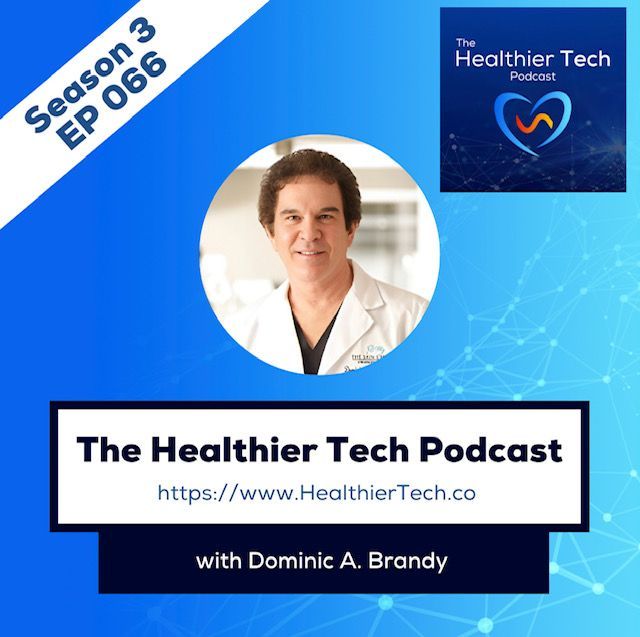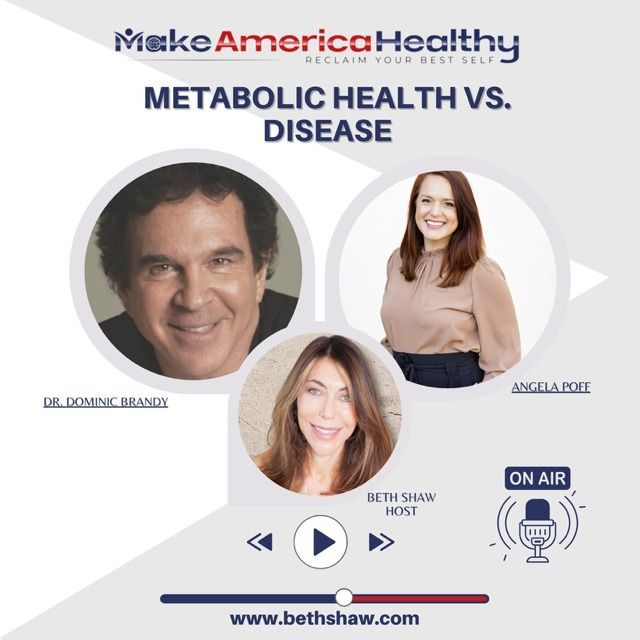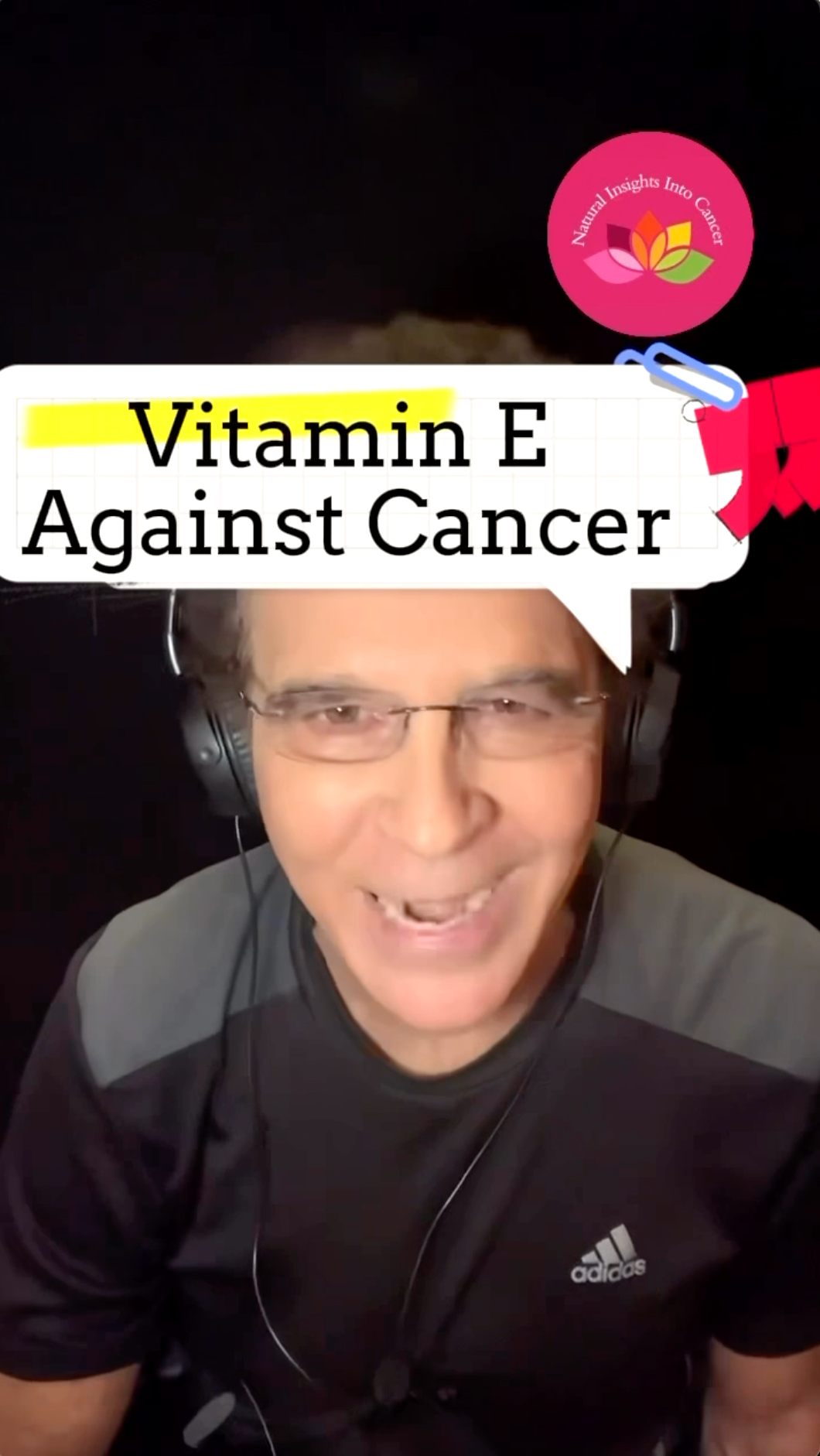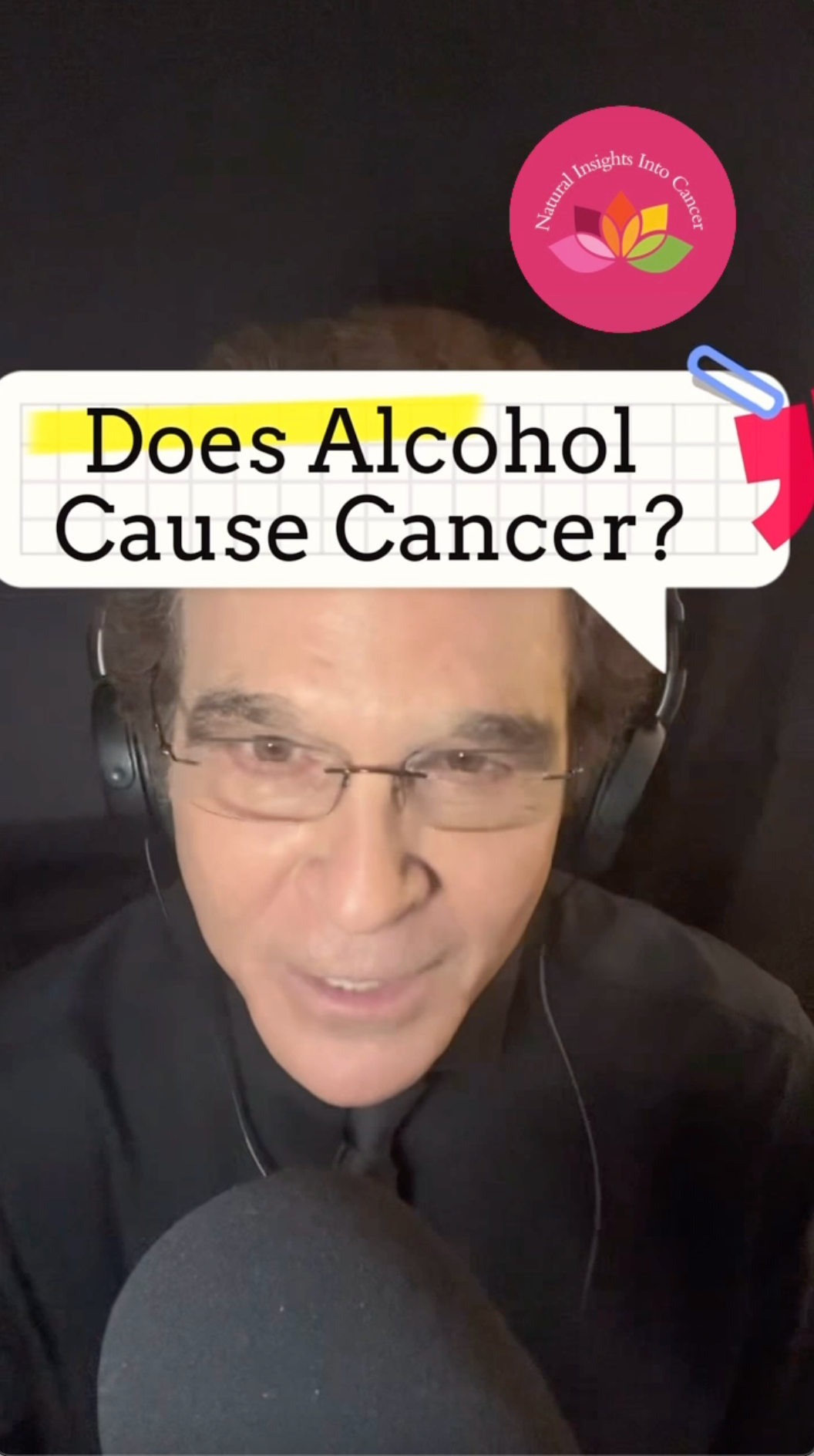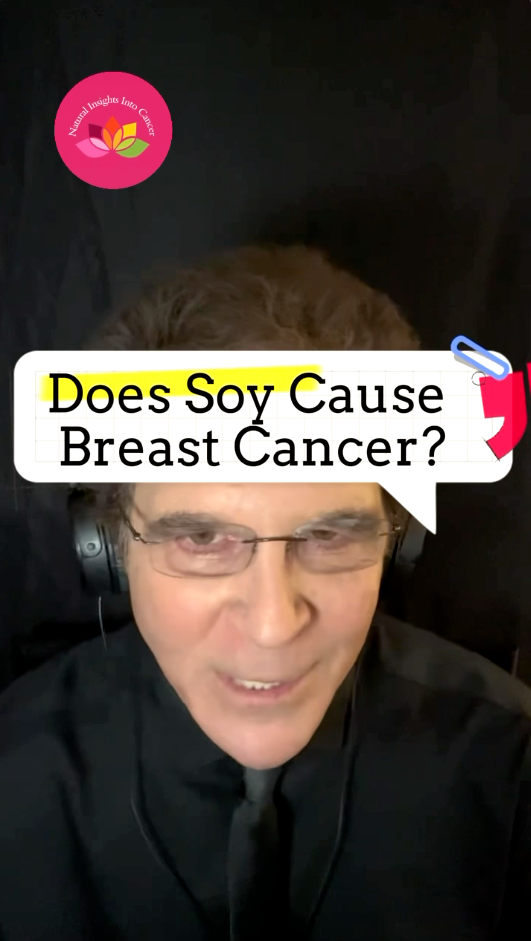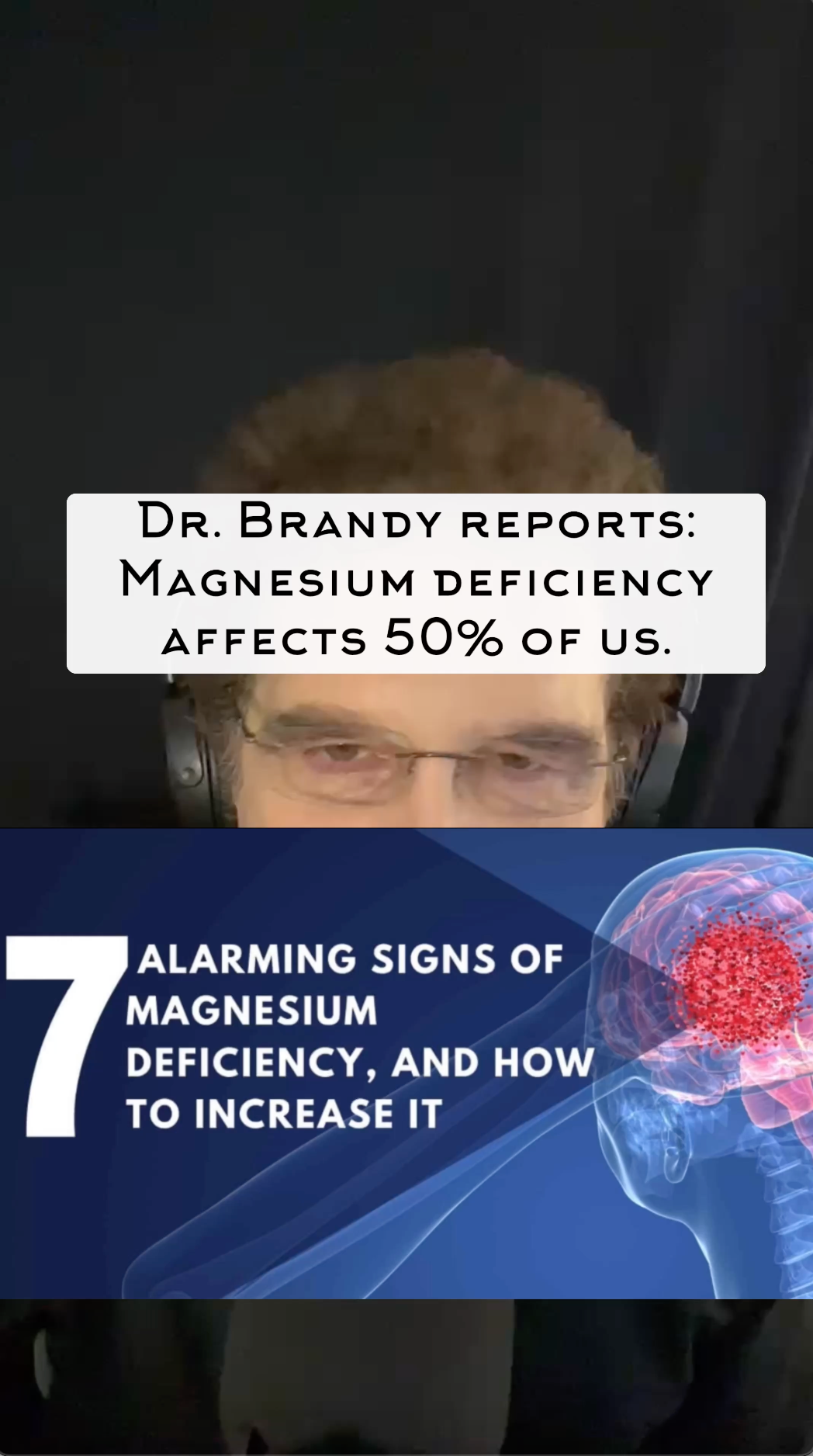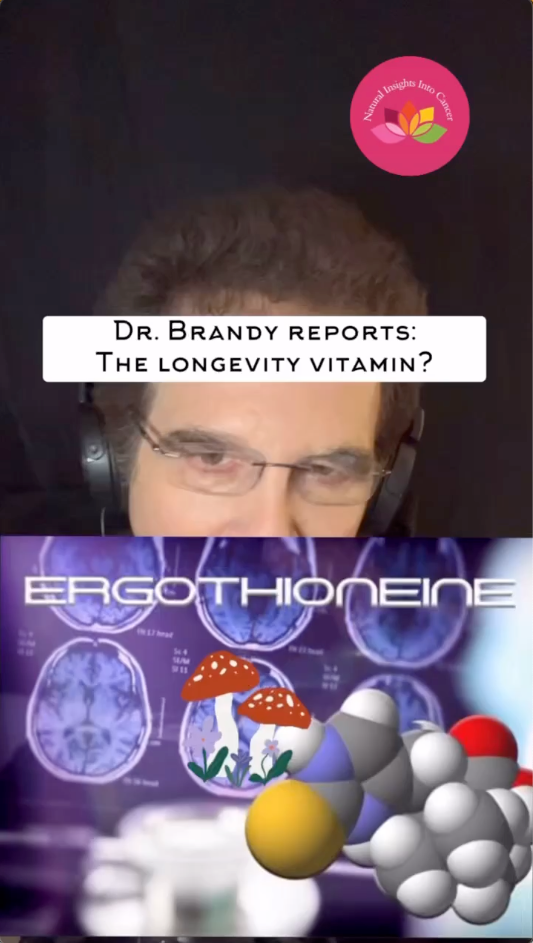The Most Powerful Anti-Cancer Foods
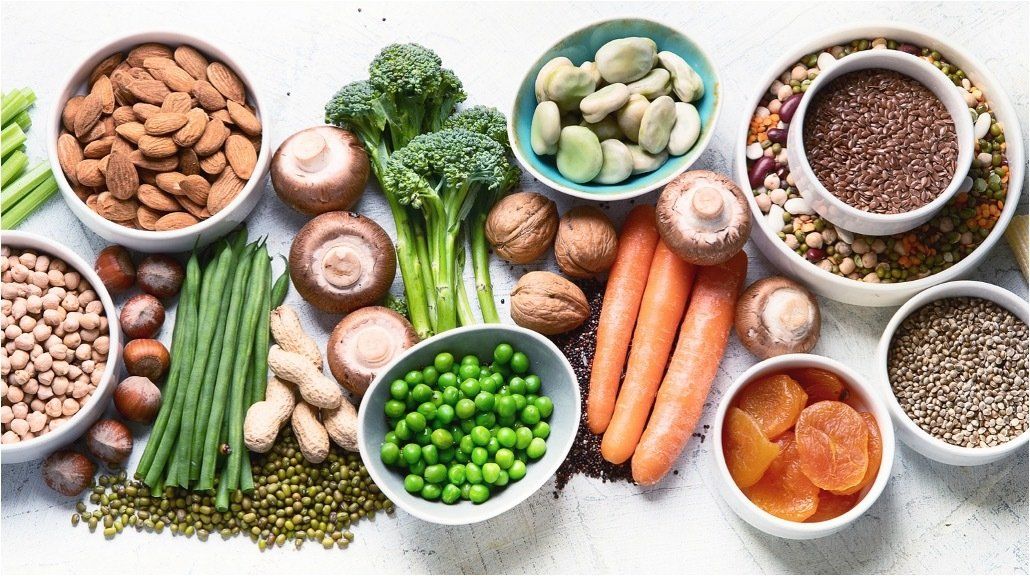
Below is a summary of my intense research of the peer-reviewed scientific literature with regard to foods that exhibit the greatest anti-cancer activity. If you read my book Beat Back Cancer Naturally you will find more than 500 scientific references to back up the power of plant foods in the fight against cancer.
BROCCOLI AND CRUCIFEROUS VEGETABLES
Broccoli contains sulforaphane, a plant compound found in cruciferous vegetables that may have potent anti-cancer properties. One petri-dish study validated that sulforaphane reduced the size and number of breast-cancer cells by up to 75% [1].
Similarly, an animal study found that treating mice with sulforaphane helped kill off prostate-cancer cells and reduced tumor volume by more than 50% [2]. Some studies have also found that a higher intake of cruciferous vegetables such as broccoli may be linked to a lower risk of colorectal cancer.
One meta-analysis of 35 studies showed that eating more cruciferous vegetables was associated with a lower risk of colorectal and colon cancer [3].
CARROTS AND HIGH BETA-CAROTENE FOODS
Several studies have found that eating more carrots is linked to a decreased risk of certain types of cancer. For example, an analysis looked at the results of 5 studies and concluded that eating carrots may diminish the risk of stomach cancer by up to 26% [4]. Another scientific inquiry discovered that a higher intake of carrots was correlated with an 18% lower chance of contracting prostate cancer [5].
One study analyzed the diets of 1,266 participants with and without lung cancer. It found that current smokers who did not eat carrots were 3X more likely to fall victim to lung cancer, compared to those who ate carrots more than once per week [6]. Because of these and many other important studies verifying the above findings, you should try to incorporate carrots and other high beta-carotene foods into your diet as a healthy snack or tasty side dish every day to increase your intake and reduce your risk of cancer. Other high beta-carotene foods are mangos, sweet potatoes, cantaloupes, kale, spinach, romaine and parsley.
BEANS
Beans have been shown to protect against colorectal cancer [7]. One study followed 1,905 people with a history of colorectal tumors and ascertained that those who consumed more cooked, dried beans had a decreased risk of tumor recurrence [8].
An animal study also found that feeding rats black beans or navy beans and then inducing colon cancer blocked the creation of cancer cells by up to 75% [9]. According to these results, eating a few servings of beans each week may increase your fiber intake and help lower the risk of developing cancer. I actually recommend 2 servings per day, and Dr. Greger, in his Daily Dozen App, recommends 3 servings per day. Remember… phytates, along with the high content of fiber in the beans, are the main players in cancer prevention. It also important to note that the longest-lived cultures in the world have beans as their major staple.
BERRIES
Berries are high in anthocyanins, plant pigments that have antioxidant properties and are linked with a reduced risk of cancer. In one human study, 25 people with colorectal cancer were treated with bilberry extract for 7 days, which was established to reduce the growth of cancer cells by 7% [10].
Another small investigation gave freeze-dried black raspberries to patients with oral cancer and showed that it decreased levels of certain biomarkers identified with cancer progression [11]. One animal study observed that feeding rats freeze-dried black raspberries diminished esophageal tumor rates by up to 54% and decreased the number of tumors by up to 62% [12]. Similarly, another rodent research project made evident that fueling rats with a berry extract decreased several cancer biomarkers [13].
Based on these findings, you should try to include a couple of berry servings into your diet each day, which will decrease your chances of coming down with cancer. I personally use a Trader Joe’s prepackaged Organic Blueberry, Blackberry, Raspberry and Strawberry Fancy Berry Medley in my smoothie every morning.
CINNAMON
Cinnamon is well known for its health benefits, including its capability to reduce blood-sugar levels and calm inflammation [14]. Furthermore, some petri-dish and rodent studies have brought to light that cinnamon may help arrest the spread of cancer cells. One petri-dish study demonstrated nicely that cinnamon extract had the ability to decrease the proliferation of cancer cells and induce their death [15]. Another research project validated that cinnamon’s essential oil restrained the growth of head- and neck-cancer cells and also dramatically reduced tumor size [16]. Still another study determined that cinnamon extract triggered cell suicide in tumor cells and also decreased the effectiveness of the tumor’s ability to grow and spread [17].
Because of these and many other studies verifying cinnamon’ anti-cancer effects, I would highly recommend adding ½–1 teaspoon of cinnamon to your diet per day. Not only will it reduce your chances of getting cancer, but it will also reduce your blood-sugar levels and decrease inflammation. Personally, I give 20 shakes of Organic Ceylon Cinnamon by Simply Organic (Amazon) into my morning coffee. I also use a teaspoon on my sweet potatoes with a pinch of clove. Tastes great and gives an incredibly high antioxidant boost.
NUTS
Research has recognized that eating nuts is linked to a lower risk of certain kinds of cancer. For instance, one observational analysis investigated the diets of 19,386 people and discovered that those eating a greater amount of nuts had a decreased risk of dying from cancer [18]. Another research project that followed 30,708 participants for up to 30 years validated that eating nuts regularly equated with a decreased risk of colorectal, pancreatic and endometrial cancers [19].
Other studies have brought to light that certain types of nuts may be linked to a decreased cancer risk. For example, Brazil nuts, which are high in selenium, may safeguard against lung cancer in those with a low selenium levels [20]. Furthermore, an interesting rodent study indicated that feeding mice walnuts decreased the growth rate of breast-cancer cells by 80% and slashed the amount of tumors by 60% [21].
These results suggest that adding a serving of nuts to your diet each day may reduce your risk of developing cancer in the future. I personally eat nuts before I take my supplements to ensure that the fat-soluble vitamins are absorbed. I eat 2 organic almonds, 2 organic walnuts, 2 organic pecans, 2 organic cashews, an organic Brazil nut, a few organic raw peanuts, a few organic pistachios and a few pumpkin seeds. Remember that variety is the key to health and cancer prevention. Eating a full handful of walnuts is not as cancer protective as eating a small amount of several types of nuts each day.
FIRST COLD-PRESSED EXTRA VIRGIN OLIVE OIL
First cold-pressed extra virgin olive oil (FCPEVOO) is loaded with health benefits. Several studies have found that a higher intake of FCPEVOO helps protect against cancer. One massive review, made up of 19 studies, established that people who regularly consume the highest amount of FCPEVOO have a lower risk of getting breast and digestive cancers when compared to those with the lowest intake [22]. Another scientific fact-finding mission looked at the cancer rates in 28 countries around the world and discovered that the regions with a greater intake of FCPEVOO had decreased rates of colorectal cancer [23].
There are some doctors in the whole food, plant-based community who tell people to eat no olive oil because they feel that all oils negatively affect the cardiovascular system. I, however, have done a very thorough search of the entire scientific literature and have found that it is very difficult to find studies showing a negative effect on the cardiovascular system. They are largely positive. I do feel very strongly, however, that you should use only FIRST COLD PRESSED EXTRA VIRGIN OLIVE OIL. It has the highest polyphenol and vitamin E levels and has consistently been found to be the most health promoting.
Also, don’t use it extravagantly! I use only about a teaspoon on my salads. Remember, one tablespoon of any oil is 120 calories. The basic breakdown of FCPEVOO is 70% healthy monounsaturated fat, 15% saturated fat, and 15% polyunsaturated fat. About 2% is made up of the health-promoting polyphenols and vitamin E. A typical tablespoon of FCPEVOO, therefore, has 2 grams of saturated fat. If you add 3 tablespoons to your salad . . . now you are adding 6 grams of saturated fat and 360 calories, which could start changing the risk-to-benefit ratio. I think this is the fear of some plant-based doctors who are treating patients with severe atherosclerosis.
Also, I would limit or, ideally, not use olive oil for cooking. The polyphenols get destroyed as you near the smoking point of 350°F, and toxic chemicals are produced at the smoking point and above. I would encourage you to learn to cook with organic-vegetable broth. Chef AJ has some very good videos on YouTube on how to do this easily and effectively. If you absolutely want to use oil for cooking, first cold-pressed avocado oil is the best oil because it has the highest smoking point (520°F) of all oils and has a nutritional breakdown similar to first cold-pressed, extra virgin olive oil.
TURMERIC/CURCUMIN
Turmeric is a spice well known for its health-promoting properties. Curcumin, its most active ingredient, is a phytonutrient with potent anti-inflammatory, antioxidant and anti-cancer effects. There are literally thousands of peer-reviewed papers in the scientific literature verifying curcumin’s anti-cancer activity. One study investigated how curcumin would affect 44 patients with precancerous lesions of the colon. The results were amazing. In just one month, 4 grams of curcumin daily reduced the number of lesions by a whopping 40% [24]! In a different analysis, curcumin was also discovered to decrease the advancement of colon cancer by zeroing in on an essential enzyme required for cancer metastasis [25]. Still another study demonstrated that curcumin could eradicate head- and neck-cancer cells [26]. Other investigations reveal that curcumin can decelerate the growth of lung-, breast-, and prostate-cancer cells [27].
When cancer patients tell me that they only want take one supplement this is the one I always recommend. For use on your food, I would aim for at least ½–3 teaspoons of ground turmeric per day. Use it as a ground spice to add flavor to foods, and pair it with black pepper to help boost its absorption.
As a supplement for cancer patients, I recommend a supplement made by Carlyle called Turmeric Curcumin Complex 3000mg that you can purchase on Amazon. Take 4 capsules in the morning and 4 at night which will give you a total of 8 grams of turmeric per day. For the prevention of cancer, I recommend 2 in the morning and 2 at night. I always eat nuts and take 3 New Age fish oil capsules before taking turmeric, because it requires fat for proper absorption. I also recommend taking 2 Bioperine black pepper extract capsules by Carlyle. Studies validate that black pepper extract increases the bioavailability of turmeric by 2,000%.
CITRUS FRUIT
Eating citrus fruits such as lemons, limes, grapefruits and oranges has been correlated with a lower risk of cancer in several analyses. One large study found that participants who ate a larger volume of citrus fruits had a lower risk of contracting digestive- and upper-respiratory-tract cancers [28]. A meta-analysis of 9 studies also ascertained that a greater consumption of citrus fruits was coupled to a reduced risk of pancreatic cancer [29]. Finally, another meta-analysis of 14 studies validated that an intake of at least 3 servings of citrus fruit per week decreased the risk of stomach cancer by 28% [30].
These studies and many other in the scientific literature strongly indicate that including a few servings of citrus fruits in your diet each day is an effective way to lower your risk of contracting certain types of cancer. I personally always include lemon and lime juice in my drinking water. I eat one orange every night, put a lemon wedge in my smoothies, and add a lemon and lime wedge to my morning tea concoction.
FLAX AND CHIA SEEDS
Flax and chia seeds are high in fiber as well as the health-promoting, anti-inflammatory omega-3 fatty acid—alpha linolenic acid. In fact, several scientific studies have demonstrated that omega-3 fatty acids can literally kill cancer cells. In one interesting study, more than 30 women with breast cancer were given either a flaxseed muffin or a placebo each day for 30+ days. When each group’s cancer biomarkers (tumor-growth and cancer-cell-death measurements) were assessed at the end of the study, the flaxseed group had significantly better results when compared to the control [31]. In another experiment, the researchers looked at 500+ men with prostate cancer who were fed ground flaxseeds on a daily basis. The results revealed that the flaxseed group had a lower rate of cancer progression [32]. Possibly because flaxseeds are so high in fiber, some studies have revealed it to be protective against colorectal cancer [33].
Try adding at least one tablespoon of ground flaxseed into your diet each day by adding it to smoothies, sprinkling it over cereal and yogurt, or adding it to your favorite baked goods. Chia seeds also have similar cancer-fighting and anti-inflammatory benefits. I place 1 tablespoon of organic ground flaxseeds and chia seeds into my daily morning smoothie.
TOMATOES
Lycopene is the phytonutrient found in tomatoes that confers its beautiful red color. It is also linked to its anti-cancer properties. Several studies have indicated that consuming more lycopene gives rise to a reduced risk of prostate cancer. A meta-analysis of 17 studies illustrated that a higher consumption of raw tomatoes, cooked tomatoes and lycopene were all correlated with a lessened probability of getting prostate cancer [34]. Another study of more than 47,000 people determined that a higher consumption of tomato sauce, in particular, equated to a lower probability of succumbing to prostate cancer [35].
So try to get a tomato into your diet each day by adding it to sandwiches, salads, sauces, or pasta dishes. Being an Italian American and loving whole-wheat pasta with garlic-infused marinara sauce, I get cooked tomatoes into my diet every single day.
GARLIC, ONIONS, LEEKS, AND SHALLOTS
One of the most active anti-cancer components in garlic is allicin, a compound that has been illustrated to kill off cancer cells in multiple experimental studies [36]. Several studies have established a link between garlic intake and a lower risk of several types of cancer. One study of 543,220 participants discovered that those individuals who consumed a lot of Allium Sativum vegetables, such as garlic, onions, leeks and shallots, had a lower chance of acquiring stomach cancer compared to those who rarely ate them [37].
Another interesting analysis of more than 450 men indicated that a greater regular consumption of garlic was linked with a diminished probability of acquiring prostate cancer [38]. Still another research project demonstrated that the men who ate lots of garlic, as well as fruit, deep-yellow vegetables, dark-green vegetables, and onions were less likely to become afflicted with colorectal cancer. This study, however, did not uncouple the positive effects of garlic from the other consumed vegetables [39].
Based on the vast amount of science, it is a great idea to include a fresh clove of garlic in your diet on a daily basis. As I stated in the previous section, I eat lots of garlic-infused tomato sauce on my whole-wheat pasta, but to make sure I get a daily dose, I do take a whole-bulb garlic supplement called Whole Bulb Garlic by Herbal Roots that you can purchase on Amazon. I take 1 capsule in the morning and 1 at night.
FATTY FISH
This is the only time I will diverge from recommending a solely whole food, plant-based diet, but there is some scientific literature demonstrating that fatty fish may have some cancer-fighting activity. One large study demonstrated that a greater consumption of fatty fish corresponded with a lower probability of coming down with digestive-tract cancer [40]. Another study that tracked 478,040 adults discovered that ingesting more fatty fish decreased the chance of contracting colorectal cancer, while red and processed meats actually inflated the probability [41]. In particular, it is the fatty fish such as salmon, mackerel, and anchovies that have critical nutrients such as vitamin D and omega-3 fatty acids, which have been associated with a lower cancer risk. Several scientific reviews have indicated that having adequate levels of vitamin D most likely protects us against cancer [42]. Furthermore, omega-3 fatty acids, through their powerful anti-inflammatory effects, deter the initiation of chronic disease and cancer [43]. If you are not strictly whole food, plant-based like me, aim for one serving of fatty fish per week or every other week to get a dose of omega-3 fatty acids and vitamin D, and to maximize the potential health benefits of these nutrients.
Just remember that nowadays most fish are highly contaminated with PCBs, mercury, microplastics and prescription drugs. I personally take a fish-oil supplement from New Age that can be purchased on Amazon. I take 3 in the morning and 3 in the evening before taking my other supplements.
PHYTONUTRIENT ACTIVITY IN A NUTSHELL
As I reiterate over and over again on my website, plant foods contain over 25,000 phytonutrients. They also have 63X the antioxidant activity compared to animal products. Below is a summary of the amazing cancer-killing activities of these incredible God-given phytochemicals:
*Increase natural killer T-cell activity Block cancer-cell-blood-vessel growth (anti-angiogenesis)
*Cause cancer-cell suicide (apoptosis)
*Disrupt cancer gap-junction cell signaling
*Inhibit cancer proteosomes (allows contaminated cancer proteins to accumulate killing the cancer cell)
*Fragment cancer DNA Make tumor-suppressor genes suppress more
*Make cancer cell apoptosis genes cause more apoptosis (cancer cell suicide)
*Help prevent chemotherapy resistance
*Stop cancer cell division at various phases of division
*Stop the methylation process that inactivates BRCA-DNA-repair genes
*Become cancer-killing pro-oxidants in the presence of cancer’s high copper and iron levels
*Protect from further mutations to normal and cancer cells
*Significantly reduce inflammation (cancer thrives on inflammation)
CONCLUSION
As new research continues to emerge, it is becoming more and more clear that your diet has a major impact on your risk of cancer. That is one reason that The National Cancer Institute recommends 9 servings of fruits and vegetables for the prevention of cancer. Although there are many foods that have potential to reduce the spread and growth of cancer cells, current research is limited to petri dish, animal and observational studies. As time goes on more and more studies will clarify how these incredibly powerful foods directly counter cancer initiation in humans. In the meantime, it’s a safe bet that a diet rich in whole plant foods paired with a healthy lifestyle, will help you in your battle against cancer while improving many other aspects of your health.
REFERENCES
1.Li Y et al. Sulforaphane, a dietary component of broccoli/broccoli sprouts, inhibits breast cancer stem cells. Clin Cancer Res. 2010 May 1;16(9):2580-90.
2. Singh AV et al. Sulforaphane induces caspase-mediated apoptosis in cultured PC-3 human prostate cancer cells andretards growth of PC-3 xenografts in vivo. Carcinogenesis. 2004 Jan;25(1):83-90.
3. Wu QJ et al. Cruciferous vegetables intake and the risk of colorectal cancer: a meta-analysis of observational studies. Ann Oncol. 2013 Apr;24(4):1079-87.
4. Fallahzadeh H et al. Effect of Carrot Intake in the Prevention of Gastric Cancer: A Meta-Analysis. J Gastric Cancer.2015 Dec;15(4):256-61.
5. XuX et al. Dietary carrot consumption and the risk of prostate cancer. Eur J Nutr. 2014 Dec;53(8):1615-23.
6. Pisani Pet al. Carrots, green vegetables and lung cancer: a case-control study. Int J Epidemiol. 1986 Dec;15(4):463-8.
7. Yao Yet al. Dietary fibre for the prevention of recurrent colorectal adenomas and carcinomas. Cochrane Database Syst Rev. 2017 Jan 8;1:CD003430.
8. Lanza E et al. High Dry Bean Intake and Reduced Risk of Advanced Colorectal Adenoma Recurrence among Participants in the Polyp Prevention Trial. The Journal of Nutrition, Volume 136, Issue 7, July 2006, Pages 1896-1903.
9. Hangen L, Bennink MR. Consumption of black beans and navy beans (Phaseolus vulgaris) reduced azoxymethane-induced colon cancer in rats. Nutr Cancer. 2002;44(1):60-5.
10. Thomasset S et al. Pilot study of oral anthocyanins for colorectal cancer chemoprevention. Cancer Prev Res (Phila). 2009 Jul;2(7):625-33.
11. Knobloch TJ et al. Suppression of Proinflammatory and Prosurvival Biomarkers in Oral Cancer Patients Consuming a Black Raspberry Phytochemical-Rich Troche. Cancer Prev Res (Phila). 2016 Feb;9(2):159-71.
12. Kresty LA et al. Chemoprevention of esophageal tumorigenesis by dietary administration of lyophilized black raspberries. Cancer Res. 2001 Aug15;61(16):6112-9.
13. Lala Get al. Anthocyanin-rich extracts inhibit multiple biomarkers of colon cancer in rats. Nutr Cancer. 2006;54(1):84-93.
14. Allen RW et al. Cinnamon use in type 2 diabetes: an updated systematic review and meta-analysis. Ann Fam Med. 2013 Sep-Oct;11(5):452-9.
15. Kwon HK et al. Cinnamon extract induces tumor cell death through inhibition of NFkappaB and AP1. BMC Cancer. 2010 Jul 24;10:392.
16. Yang QX et al. Essential oil of Cinnamon exerts anti-cancer activity against head and neck squamous cell carcinoma via attenuating epidermal growth factor receptor-tyrosine kinase. J BUN. 2015 Nov-Dec;20(6):1518-25.
17. Kwon HK et al. Cinnamon extract induces tumor cell death through inhibition of NFkappaB and AP1. BMC Cancer. 2010;10:392.
18. Bonaccio Met al. Nut consumption is inversely associated with both cancer and total mortality in a Mediterranean population: prospective results from the Moli-sani study. Br J Nutr. 2015 Sep 14;114(5):804-11.
19. Wu Let al. Nut consumption and risk of cancer and type 2 diabetes: a systematic review and meta-analysis. Nutr Rev 2015 Jul;73(7):409-25.
20. Fritz Het al. Selenium and Lung Cancer: A Systematic Review and Meta Analysis. PLoS One. 2011; 6(11): e26259.
21. Hardman WE. Walnuts have potential for cancer prevention and treatment in mice. J Nutr. 2014 Apr;144(4 Suppl):5555-560S.
22. Psaltopoulouil I et al. Olive oil intake is inversely related to cancer prevalence: a systematic review and a meta-analysis of 13800 patients and 23340 controls in 19 observational studies. Lipids Health Dis. 2011; 10: 127.
23. Stoneham Met al. Olive oil, diet and colorectal cancer: an ecological study and a hypothesis. J Epidemiol Community Health. 2000 Oct;54(10):756-60.
24. Carroll RE et al. Phase Ila clinical trial of curcumin for the prevention of colorectal neoplasia. Cancer Prev Res (Phila). 2011 Mar;4(3):354-64.
25. Lim TG et al. Curcumin suppresses proliferation of colon cancer cells by targeting CDK2. Cancer Prev Res (Phila).2014 Apr;7(4):466-74.
26. Amin AR et al. Curcumin induces apoptosis of upper aerodigestive tract cancer cells by targeting multiple pathways. PLOS One. 2015 Apr 24;10(4):e0124218.
27. Tsai JR et al. Curcumin Inhibits Non-Small Cell Lung Cancer Cells Metastasis through the Adiponectin/NF-Kb/MMPs Signaling Pathway. PLoS One. 2015 Dec 10;10(12):e0144462.
28. Foschi Ret al. Citrus fruit and cancer risk in a network of case-control studies. Cancer Causes Control. 2010 Feb;21(2):237-42.
29. Bae JM et al. Citrus fruit intake and pancreatic cancer risk: a quantitative systematic review. Pancreas. 2009 Mar;38(2):168-74.
30. Bae JM et al. Citrus fruit intake and stomach cancer risk: a quantitative systematic review. Gastric Cancer. 2008;11(1):23-32.
31. Thompson LU et al. Dietary flaxseed alters tumor biological markers in postmenopausal breast cancer. Clin Cancer Res. 2005 May 15;11(10):3828-35.
32. Demark-Wahnefried Wet al. Flaxseed supplementation (not dietary fat restriction) reduces prostate cancer proliferation rates in men presurgery. Cancer Epidemiol Biomarkers Prev. 2008 Dec;17(12):3577-87.
33. Yao Yet al. Dietary fire for the prevention of recurrent colorectal adenomas and carcinomas. Cochrane Database Syst Rev. 2017 Jan 8;1:CD003430.
34. Chen Jet al. Lycopene/tomato consumption and the risk of prostate cancer: a systematic review and meta-analysis
of prospective studies. J Nutr Sci Vitaminol (Tokyo). 2013;59(3):213-23.
35. Giovannucci E et al. A prospective study of tomato products, lycopene, and prostate cancer risk. J Nat Cancer Inst. 2002 Mar 6;94(5):391-8.
36. Bat-Chen Wet al. Allicin purified from fresh garlic cloves induces apoptosis in colon cancer cells via Nrf2. Nutr Cancer.2010;62(7):947-57.
37. Hsing AW et al. Allium vegetables and risk of prostate cancer: a population-based study. J Natl Cancer Inst. 2002 Nov 6;94(21):1648-51.
38. Hsing AW et al. Allium vegetables and risk of prostate cancer: a population-based study. J Natl Cancer Inst. 2002 Nov 6;94(21):1648-51.
39. Millen AE et al. Fruit and vegetable intake and prevalence of colorectal adenoma in a cancer screening trial. Am J Clin Nutr. 2007 Dec;86(6):1754-64.
40. Fernandez E et al. Fish consumption and cancer risk. Am J Clin Nutr. 1999 Jul;70(1):85-90.
41. Norat Tet al. Meat, fish, and colorectal cancer risk: the European Prospective Investigation into cancer and nutrition. J Natl Cancer Inst. 2005 Jun; 97(12): 906-916.
42. Garland CF et al. The Role of Vitamin D in Cancer Prevention. Am J Public Health. 2006 February; 96(2): 252-261.
43. Jing K et al. Omega-3 polyunsaturated fatty acids and cancer. Anticancer Agents Med Chem. 2013 Oct;13(8):1162-77.
Natural Insights Into Cancer Blog
